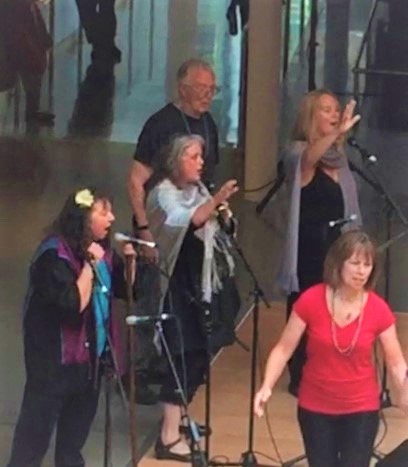
It’s a well-known fact that Parkinson’s disease can affect the voice. One of the secondary motor symptoms that people with PD may experience is a change in speech, or speech difficulty. It can cause significant communication problems, reduced social interactions and isolation. However, not everyone with PD will have changes in their speech.
There are several ways PD may affect speech:
- Dysarthria, a motor speech disorder or impairment in speaking due to PD affecting the muscles required for speech. The voice may get softer, breathy, or hoarse, making it difficult to hear what is being said.
- Hypophonia, which means soft speech, is an abnormally weak voice caused by the weakening muscles.
- Tachyphemia, or cluttering, is characterized by an excessively fast speed of talking and a rapid stammering or mumbling making the person difficult to understand.
- The tone of the voice may become monotone, lacking inflections.
- Slowed Speech, when the person has difficulty finding the right words.
- Facial Masking, where communication may be further affected when a person’s face has less movement and appears less animated.
Treating speech difficulties:
A speech therapist or speech language pathologist can evaluate and treat speech difficulties. One program, with exercises specifically for people with PD, is called the Lee Silverman Voice Treatment (LSVT). This program has shown improvements that can last up to two years.
Other options include assistive communication devices, such as a portable voice amplifier (Chatter Box) or an electronic device for stuttering (Speech Easy).
The problem with most voice treatments is if you don’t use or practice, you lose the benefits. It’s hard to get motivated to do it alone.
Therefore, we have added vocal exercises, movement and rhythms to our Parkinson’s programing.
Our goal is to make joyful noise while we work on:
- Breathing exercises
- Articulation/pitch/vocal projection
- Singing
- Movement and posture
- Rhythm instrument play

Our class curriculum was inspired by Michelle Garret. Her vocal background includes choirs, 8 years of professional band performance, and college level vocal training in addition to teaching voice and movement for 10 years. Michelle continues to sing and teach since her own diagnosis of PD because she knows the importance of keeping the joy of music alive while exercising your vocal cords. Michelle had the privilege of learning some wonderful teaching techniques specific to people with PD this year from Judi Spencer at the World Parkinson’s Congress in Kyoto, Japan.
Judi Spencer travels internationally as an inspirational speaker, leads rhythm and singing workshops, and performs as a concert marimba artist. Judi has worked with the global Parkinson’s community for over 20 years. Her father was diagnosed with PD in 1996 and she promised him that she would always stay involved.
If you want to learn more about this amazing program being held at the Rebel Fit Club, please contact Kimberly Berg at (503) 407-1335 or kimberly@kimberlyberg.net
